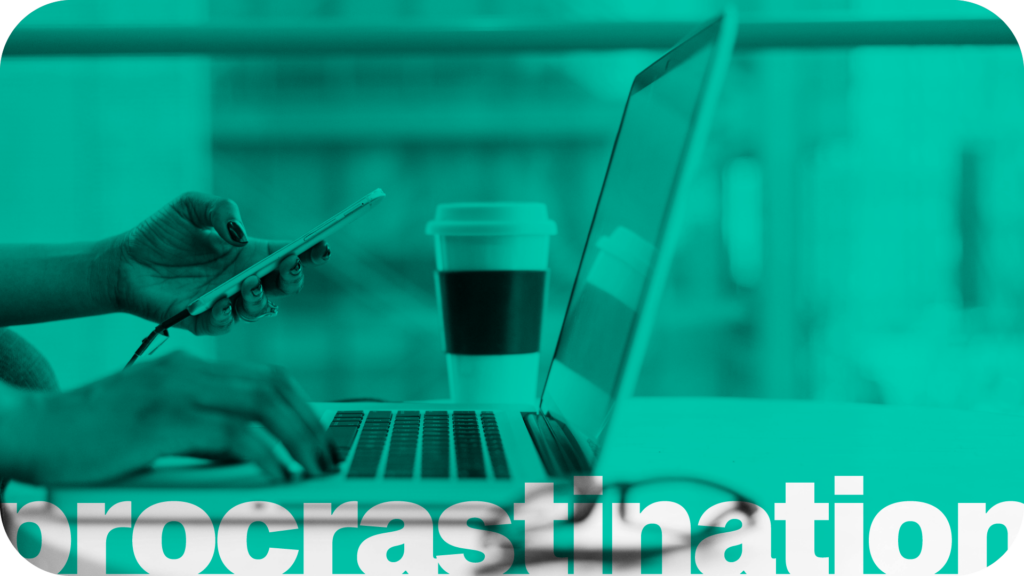
“By permitting yourself to take breaks
and indulge in procrastination,
you're allowing your mind the space
to recharge and rejuvenate.”
In the field of productivity, procrastination is often seen as the antagonist. It’s the enigmatic figure that lurks in the corner, luring people in with seductive diversion and pleasant distractions. However, what if I told you that, when used skillfully, procrastination may actually be an unexpected ally in postponing burnout and helping you maintain well-being at work?
Now, before you dismiss this notion consider this: picture yourself as overburdened with deadlines, with a kilometers-long to-do list, and stress levels that are about to explode out of control. It’s during these times of feeling overwhelmed that procrastination becomes most adept.
Procrastination can improve your productivity and happiness because it shines a light on what’s most important to you. You’re less likely to procrastinate on things you love to do or that matter to you. (Newsonen, S., 2015)
Imagine a person who is putting off responsibilities till the very last minute but still manages to get the work done. Most importantly, this individual is the least anxious one in the office. While everyone else is scrambling to meet deadlines, this gentleman enters the room with a serene smile, handling his tasks with the ease of a Zen master.
What is the secret? How can we turn procrastination from foe to friend? Allow me to unveil some useful techniques:
Selective procrastination. Instead of mindlessly procrastinating on every task that comes to you, strategically choose which tasks to delay. Give yourself permission to put off the less important tasks, make space, and concentrate on the ones that will cause you the most anxiety and worry if prolonged.
Productive procrastination. It’s true—productive procrastination does exist. Rather than giving in to blanc scrolling on social media and other pointless activities, direct your procrastinating energy towards endeavors worth your time. Must take on that intimidating report? How about taking a little walk around the office to spark your imagination? Feeling overwhelmed by emails? How about organizing your desk and decluttering your workspace to clear your mind? Need more frequent breaks – use an app that helps you improve your cognitive abilities and refocus through games. You can try RelaxifyApp.
And, of course, don’t forget to take your well-deserved breaks!
Now, of course, there would be some skeptics thinking – isn’t procrastination the antithesis of productivity? While it may seem counterintuitive, embracing procrastination in moderation can actually prevent burnout and boost creativity. By giving yourself permission to take breaks and indulge in procrastination, you’re allowing your mind the space to recharge and renew.
The secret to effective procrastination, however, is to know when to set priorities and when to procrastinate. While putting things off can help prevent burnout, it’s important to find a balance and stay out of the vicious cycle of procrastination. Define deadlines, set limits, and take responsibility for your actions to make sure procrastination is used as a tactical tool rather than a harmful one.
To sum up, the skill of procrastination is a carefully balancing act between diligence and delay, as well as leisure and labor. When used skillfully, procrastination may be a great tool for preventing burnout, reducing stress, and encouraging creativity at work.
For further insights on navigating and mitigating burnout, stay attuned to our forthcoming handbook on “Building Resilience: Burnout Prevention and Recovery”

Written by:
Jana Petreska – Psychologist and Mental Health Specialist at Psyent